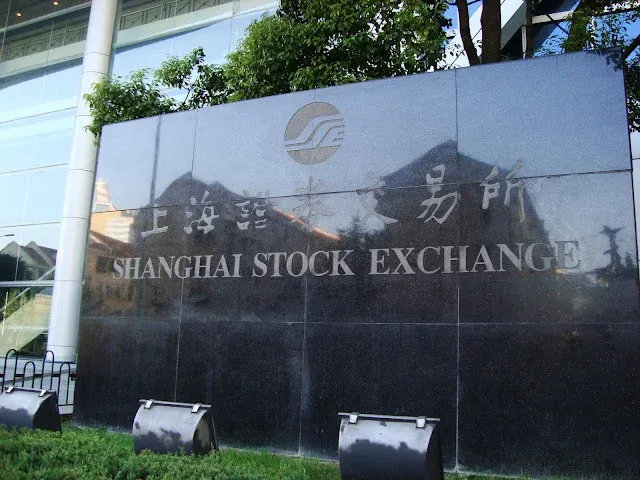Shanghai Stock Exchange
Originally opened in the 1860s, the Shanghai Stock Exchange (SSE) was shut down by the Communist Party in 1949. In 1990, the exchange opened again, ushering in a new age for the Chinese economy, one heralded by wild swings, with both market run-ups and crashes.
Unlike other stock exchanges around the world, the SSE operates as a nonprofit organization. It’s administered by the CSRC (China Securities Regulatory Commission), and is prone to excessive government oversight. Most of the major companies listed in this exchange used to be state-run companies, including insurance companies and banks.
In order to qualify for listing on the SSE, a company has to be in business and earn profits for at least three years.
The SSE, which is the largest stock exchange operating in China, lists two different types of shares: A shares and B shares. A shares are quoted only in Chinese currency, the yuan.
They represent stock in companies based on the Chinese mainland. Until fairly recently, only citizens of mainland China could buy A shares. However, approved foreign investors, designated as QFII (qualified foreign institutional investors) are now allowed to purchase them through a special highly regulated system. B shares are open to both foreign and domestic investors, and these shares are quoted in other currencies, like U.S. dollars. Every stock on the SSE trades in both A and B shares.
The main index tracking the Shanghai Stock Exchange is the SSE Composite. This measure is expected to mirror the overall Chinese economy as more state-run companies go public. In 2015, the SSE cycled through majestic highs and painful lows, displaying extreme volatility despite focused government intervention. One reason for those very wide swings was the extremely high proportion of margin trading (when investors borrow against their holdings to buy shares on credit), which involved trillions of yuan (Chinese currency).
Another reason was the heavy hand of the Chinese government, which exercised its power even as it attempted to offer freer access to foreign institutional investors.
Companies listed on the Shanghai Stock Exchange include Air China, Bank of China, PetroChina, and Tsingtao Brewery. Though some inroads have been made that allow certain foreign investors to buy Chinese stocks, individual foreign investors can more easily invest in these shares using the Stock Exchange of Hong Kong.
Unlike other stock exchanges around the world, the SSE operates as a nonprofit organization. It’s administered by the CSRC (China Securities Regulatory Commission), and is prone to excessive government oversight. Most of the major companies listed in this exchange used to be state-run companies, including insurance companies and banks.
The SSE, which is the largest stock exchange operating in China, lists two different types of shares: A shares and B shares. A shares are quoted only in Chinese currency, the yuan.
They represent stock in companies based on the Chinese mainland. Until fairly recently, only citizens of mainland China could buy A shares. However, approved foreign investors, designated as QFII (qualified foreign institutional investors) are now allowed to purchase them through a special highly regulated system. B shares are open to both foreign and domestic investors, and these shares are quoted in other currencies, like U.S. dollars. Every stock on the SSE trades in both A and B shares.
The main index tracking the Shanghai Stock Exchange is the SSE Composite. This measure is expected to mirror the overall Chinese economy as more state-run companies go public. In 2015, the SSE cycled through majestic highs and painful lows, displaying extreme volatility despite focused government intervention. One reason for those very wide swings was the extremely high proportion of margin trading (when investors borrow against their holdings to buy shares on credit), which involved trillions of yuan (Chinese currency).
Another reason was the heavy hand of the Chinese government, which exercised its power even as it attempted to offer freer access to foreign institutional investors.
Companies listed on the Shanghai Stock Exchange include Air China, Bank of China, PetroChina, and Tsingtao Brewery. Though some inroads have been made that allow certain foreign investors to buy Chinese stocks, individual foreign investors can more easily invest in these shares using the Stock Exchange of Hong Kong.

-modified.webp)


.webp)
















No comments